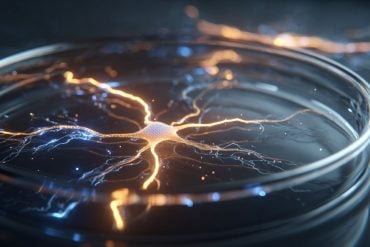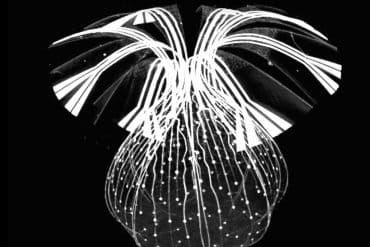Summary: A large cohort study of older adults found that eating at least one egg per week was linked to a significantly lower risk of Alzheimer’s dementia. Participants who consumed eggs more frequently also showed less Alzheimer’s-related pathology in their brains at autopsy.
The protective effect was partly mediated by higher dietary choline, a nutrient abundant in eggs and critical for brain health. These findings suggest that incorporating eggs into the diet may be a simple strategy to support cognitive health in aging.
Key Facts:
- Eating ≥1 egg per week reduced Alzheimer’s dementia risk by ~47% compared to <1/month.
- Brain autopsies showed less amyloid and tau pathology in frequent egg eaters.
- About 39% of the protective effect was explained by dietary choline intake.
Source: Neuroscience News
Could something as simple as enjoying a few eggs each week help protect your brain as you age? A new study suggests it might.
Researchers from the Rush Memory and Aging Project have found that older adults who consumed at least one egg per week had about half the risk of developing Alzheimer’s dementia compared to those who ate eggs less than once a month.

The findings also showed less Alzheimer’s pathology in the brains of frequent egg eaters after death, with part of this protective effect traced to the essential nutrient choline.
The study followed over 1,000 older adults, average age 81, for nearly seven years. Participants who ate at least one egg per week showed a 47% lower risk of Alzheimer’s dementia, even after adjusting for other lifestyle and dietary factors.
Brain autopsies from a subgroup of deceased participants confirmed that those who ate eggs weekly had less of the hallmark plaques and tangles associated with Alzheimer’s disease.
Notably, statistical analyses revealed that about 40% of this benefit came through higher dietary choline intake — a key nutrient abundant in eggs and known to support healthy brain cell membranes and neurotransmission.
Choline and omega-3 fatty acids, both found in egg yolks, have long been linked to neuroprotective effects. This study is the first large-scale longitudinal research to tie regular egg consumption to reduced clinical and pathological signs of Alzheimer’s disease.
While the authors caution that more research, including randomized clinical trials, is needed to confirm these findings, they note that eggs are an affordable, palatable way for older adults to boost brain-healthy nutrients in their diets.
The results could have public health significance as Alzheimer’s rates continue to climb worldwide.
“These findings suggest that a simple dietary habit — eating eggs more than once a week — may offer meaningful protection against cognitive decline and dementia,” the authors conclude.
Future research may determine whether eggs can be recommended as part of broader preventive strategies for maintaining cognitive health in aging populations.
About this diet and Alzheimer’s disease research news
Author: Neuroscience News Communications
Source: Neuroscience News
Contact: Neuroscience News Communications – Neuroscience News
Image: The image is credited to Neuroscience News
Source: Open access.
“Association of Egg Intake With Alzheimer’s Dementia Risk in Older Adults: The Rush Memory and Aging Project” by Yongyi Pan et al. Journal of Nutrition
Abstract
Association of Egg Intake With Alzheimer’s Dementia Risk in Older Adults: The Rush Memory and Aging Project
Background
Alzheimer’s disease (AD) is a neurodegenerative disorder with increasing prevalence due to population aging. Eggs provide many nutrients important for brain health, including choline, omega-3 fatty acids, and lutein. Emerging evidence suggests that frequent egg consumption may improve cognitive performance on verbal tests, but whether consumption influences the risk of Alzheimer’s dementia and AD is unknown.
Objectives
To examine the association of egg consumption with Alzheimer’s dementia risk among the Rush Memory and Aging Project cohort.
Methods
Dietary assessment was collected using a modified Harvard semiquantitative food frequency questionnaire. Participants’ first food frequency questionnaire was used as the baseline measure of egg consumption. Multivariable adjusted Cox proportional hazards regression models were used to investigate the associations of baseline egg consumption amount with Alzheimer’s dementia risk, adjusting for potential confounding factors.
Subgroup analyses using Cox and logistic regression models were performed to investigate the associations with AD pathology in the brain. Mediation analysis was conducted to examine the mediation effect of dietary choline in the relationship between egg intake and incident Alzheimer’s dementia.
Results
This study included 1024 older adults {mean [±standard deviation (SD)] age = 81.38 ± 7.20 y}. Over a mean (±SD) follow-up of 6.7 ± 4.8 y, 280 participants (27.3%) were clinically diagnosed with Alzheimer’s dementia. Weekly consumption of >1 egg/wk (hazard ratio [HR]: 0.53; 95% confidence interval [CI]: 0.34, 0.83) and ≥2 eggs/wk (HR: 0.53; 95% CI: 0.35, 0.81) was associated with a decreased risk of Alzheimer’s dementia.
Subgroup analysis of brain autopsies from 578 deceased participants showed that intakes of >1 egg/wk (HR: 0.51; 95% CI: 0.35, 0.76) and ≥2 eggs/wk (HR: 0.62; 95% CI: 0.44, 0.90) were associated with a lower risk of AD pathology in the brain. Mediation analysis showed that 39% of the total effect of egg intake on incident Alzheimer’s dementia was mediated through dietary choline.
Conclusions
These findings suggest that frequent egg consumption is associated with a lower risk of Alzheimer’s dementia and AD pathology, and the association with Alzheimer’s dementia is partially mediated through dietary choline.






